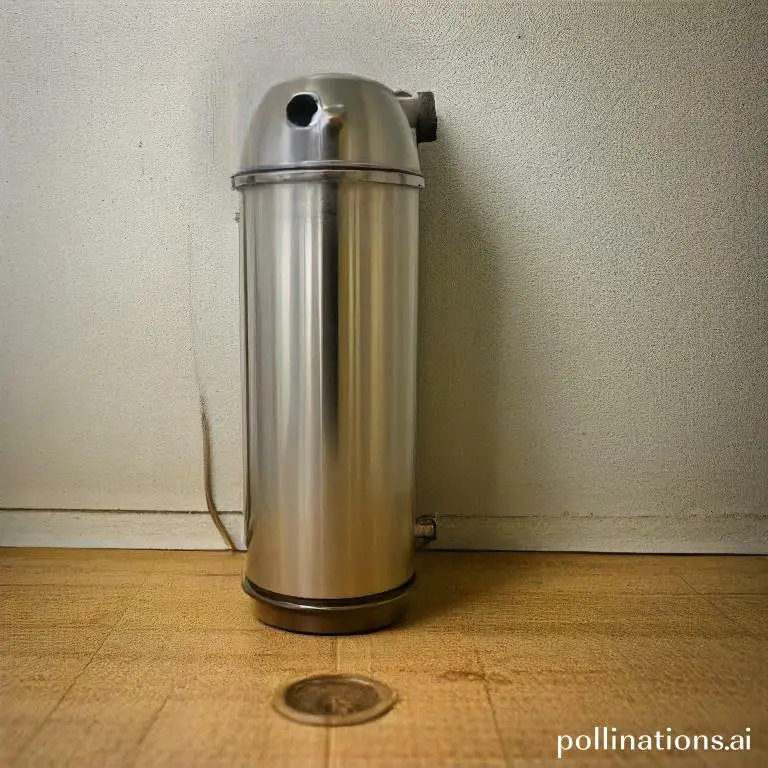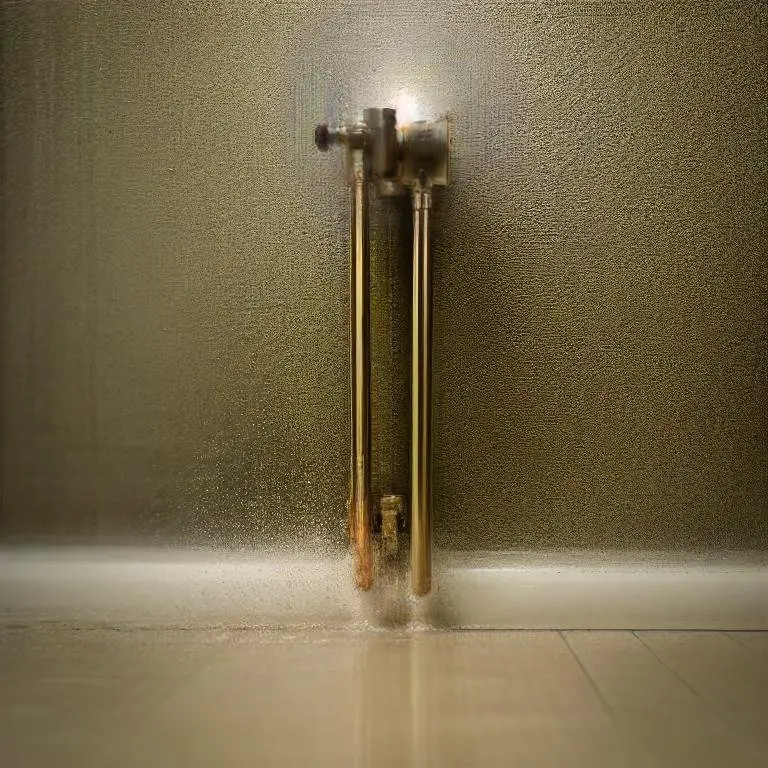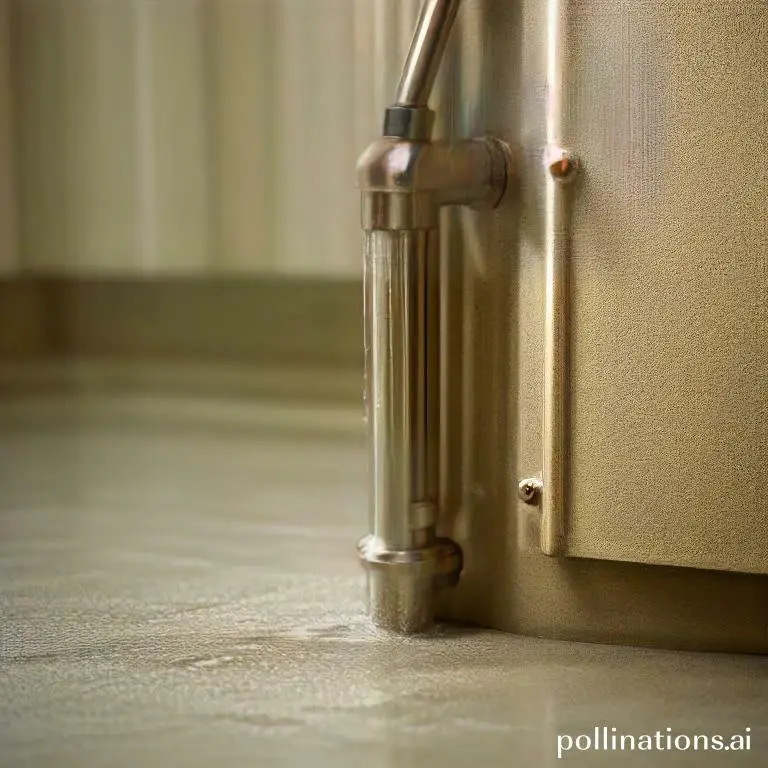
II. The source of the leak should be identified and repaired promptly to avoid further damage.
III. Regular maintenance and inspection can help prevent leaks and prolong the lifespan of the water heater.
Leaks in water heaters can have a significant impact on the noise they produce. When a water heater develops a leak, it can cause the unit to work harder to maintain the desired temperature, resulting in increased noise levels.
This is often due to the water leaking onto the heating elements or other components, causing them to heat up unevenly and create loud pops or crackling sounds. Additionally, leaks can lead to the buildup of sediment or mineral deposits, further exacerbating the noise issue.
Addressing leaks promptly and ensuring proper maintenance can help reduce noise and prolong the lifespan of your water heater.
Identifying Water Heater Leaks
Water heater leaks can be a common and frustrating issue for homeowners. It is essential to identify the source of the leak promptly to prevent further damage. Here are some methods to help you identify water heater leaks:
1. Visual Inspection
Start by visually inspecting your water heater. Look for any signs of water puddles, dampness, or corrosion around the tank, fittings, or pipes. Pay close attention to the bottom of the tank, as leaks often occur there.
Example: If you notice water pooling around the base of your water heater, it could indicate a leak in the tank or a faulty valve.
2. Sound Check
Listen for any unusual sounds coming from your water heater. Hissing or bubbling noises may indicate a leak. These sounds are typically caused by water escaping through small cracks or holes.
Example: If you hear a hissing sound near the top of your water heater, it could be a sign of a leaking pressure relief valve.
3. Water Pressure Test
Perform a water pressure test to check for leaks. Turn off all faucets and appliances that use water. Attach a pressure gauge to a hose bib or a drain valve on the water heater. Open the valve and observe the pressure reading. If the pressure drops, it may indicate a leak.
Example: If the pressure drops significantly within a short period, it could suggest a leak in the water heater or associated pipes.
4. Dye Test
A dye test can help identify small leaks that may not be visible to the naked eye. Add a few drops of food coloring or a dye tablet into the water in the tank. If the colored water appears in the drain or on the floor, there is likely a leak.
Example: If you notice colored water near the base of your water heater, it indicates a leak in the tank.
5. Temperature and Pressure Relief Valve Test
The temperature and pressure relief (TPR) valve is an essential safety feature of a water heater. Test the TPR valve by lifting the lever partially and then releasing it. If water continues to flow or if the valve does not close properly, it may be a sign of a leak.
Example: If water keeps flowing from the TPR valve after testing, it suggests a leak or a malfunctioning valve.
Common Causes of Water Heater Leaks
Water heater leaks can be a frustrating and potentially damaging problem. Discerning the common causes of these leaks can help you identify and address the issue promptly. Here are some key factors that can contribute to water heater leaks:
1. Corrosion
Corrosion is a leading cause of water heater leaks. Over time, the metal components of your water heater can deteriorate due to chemical reactions with the water. This can result in small holes or cracks that allow water to escape. Regular maintenance and inspections can help detect corrosion early on and prevent leaks.
2. Sediment Buildup
Another common cause of water heater leaks is sediment buildup. Over time, minerals and debris can accumulate at the bottom of the tank, creating a layer of sediment. This sediment can cause the tank to overheat, leading to leaks. Flushing your water heater regularly can help remove the sediment and prevent leaks.
3. Loose Connections
Leaks can also occur due to loose connections in your water heater system. If the fittings or pipes connected to the water heater become loose or damaged, water can seep out. It’s important to regularly check and tighten any loose connections to prevent leaks.
4. High Water Pressure
High water pressure can put excessive strain on your water heater, leading to leaks. The pressure can cause the valves and fittings to weaken or fail, resulting in water leakage. Installing a pressure regulator can help control the water pressure and prevent leaks.
5. Faulty Valves
Water heater leaks can also be caused by faulty valves. The temperature and pressure relief valve, as well as the drain valve, can wear out or malfunction over time. This can lead to leaks or excessive water discharge. Regularly inspecting and replacing faulty valves can help prevent leaks and ensure the proper functioning of your water heater.
Effects of Water Heater Leaks on Noise
Water heater leaks can not only cause water damage but also lead to various noises within your home. Mastering the different sounds associated with water heater leaks can help you identify and address any issues promptly.
1. Whistling Sounds
One of the common noises caused by water heater leaks is a whistling sound. This high-pitched noise often indicates a problem with the pressure relief valve or a leak in the water lines. Fundamental to address this issue quickly to prevent further damage to your water heater.
2. Hissing Sounds
If you hear hissing sounds coming from your water heater, it could be a sign of a leak in the hot water outlet or inlet pipes. This noise is typically caused by the water escaping and coming into contact with the hot surfaces of the heater. It is crucial to fix the leak to avoid any potential hazards.
3. Banging Sounds
Banging or knocking noises coming from your water heater can be alarming. These sounds are often caused by the sudden change in water pressure due to a leak. The noise can also indicate the presence of sediment buildup inside the tank, which can cause the water heater to work inefficiently. Regular maintenance can help prevent these issues.
4. Popping Sounds
When water heater leaks occur, you may hear popping or cracking sounds. These noises typically result from the heating element coming into contact with the water. The presence of mineral deposits can cause the water to boil unevenly, leading to these noises. Flushing the water heater regularly can help reduce mineral buildup and prevent such sounds.
5. Gurgling Sounds
Gurgling noises are often a result of water heater leaks, indicating the presence of air in the system. This air can enter the water heater through leaks or cracks, causing a disruption in the flow and leading to gurgling sounds. Addressing the leaks promptly can help restore proper water flow and eliminate these noises.

Fixing Water Heater Leaks
Water heater leaks can be a frustrating and potentially damaging problem. Integral to address them promptly to avoid further issues and ensure the longevity of your water heater. In this section, we will traverse various methods to fix water heater leaks, ranging from simple DIY solutions to more complex repairs.
Tightening Loose Connections
One common cause of water heater leaks is loose connections. Over time, the connections between pipes and fittings can become loose, leading to water seepage. To fix this issue, carefully inspect all connections and tighten them using a wrench or pliers. Ensure that the connections are secure, but be cautious not to overtighten as this can cause damage.
Replacing Faulty Valves
Faulty valves can also contribute to water heater leaks. If you notice water dripping from the valve area, it may be time for a replacement. Start by turning off the water supply to the heater and draining any excess water. Then, carefully remove the old valve and replace it with a new one. Make sure to follow the manufacturer’s instructions and use the appropriate tools for the job.
Flushing Sediment Buildup
Over time, sediment can accumulate in your water heater, leading to leaks and reduced efficiency. Flushing the tank can help remove this buildup and prevent leaks. Start by turning off the power supply to the heater and allowing it to cool. Attach a hose to the drain valve and carefully drain the tank. Repeat this process until the water runs clear, indicating that the sediment has been flushed out.
Replacing Corroded Parts
Corrosion is another common cause of water heater leaks. Over time, the internal components of the heater can corrode, leading to cracks and leaks. If you notice signs of corrosion, such as rust or discolored water, it may be necessary to replace the affected parts. Consult a professional plumber or refer to the manufacturer’s instructions for guidance on replacing corroded parts.
Reducing Water Pressure
High water pressure can put excessive strain on your water heater, leading to leaks. To address this issue, consider installing a pressure-reducing valve. This valve will help regulate the water pressure entering your home, preventing leaks and extending the lifespan of your water heater. Consult a professional plumber for assistance with installing a pressure-reducing valve.
| Fixing Water Heater Leaks | |
|---|---|
| Tightening Loose Connections | |
| Replacing Faulty Valves | |
| Flushing Sediment Buildup | |
| Replacing Corroded Parts | |
| Reducing Water Pressure |

Preventing Water Heater Leaks
Water heater leaks can cause significant damage to your home and belongings. It is essential to take preventive measures to avoid such incidents. Here are some steps you can take:
1. Regular Maintenance
Regular maintenance is crucial to prevent water heater leaks. Schedule annual inspections with a professional plumber who can check for any signs of wear and tear. They will also flush the tank to remove sediment buildup, which can lead to leaks.
2. Installing a Water Softener
Hard water contains minerals that can corrode your water heater and cause leaks. Installing a water softener can help remove these minerals and extend the lifespan of your water heater. It will also improve the efficiency of your water heater, saving you money on energy bills.
3. Installing a Pressure Regulator
High water pressure can put excessive strain on your water heater, leading to leaks. Installing a pressure regulator can help maintain a steady and safe water pressure throughout your plumbing system, reducing the risk of leaks.
4. Using a Drain Pan
Placing a drain pan underneath your water heater can help contain any leaks and prevent water damage. Ensure that the drain pan is properly installed and connected to a drain line to redirect any water away from your home.
5. Replacing Old Water Heaters
If your water heater is old and showing signs of deterioration, it may be time to replace it. Older water heaters are more prone to leaks and inefficiencies. Consider upgrading to a newer, more energy-efficient model to reduce the risk of leaks and save on energy costs.
| Preventive Steps | Benefits |
|---|---|
| Regular Maintenance | Identify and address potential issues early |
| Installing a Water Softener | Prevent mineral buildup and extend water heater lifespan |
| Installing a Pressure Regulator | Maintain safe water pressure and prevent strain on the water heater |
| Using a Drain Pan | Contain leaks and redirect water away from your home |
| Replacing Old Water Heaters | Upgrade to a more efficient and reliable water heater |
Bottom Line
Leaks in water heaters can cause a variety of problems, including increased noise levels. The impact of leaks on water heater noise can range from minor to severe, depending on the location and severity of the leak. In some cases, leaks can be repaired easily, during in others, the entire unit may need to be replaced. Regular maintenance and inspection can help prevent leaks and prolong the life of your water heater. If you notice any unusual noises or signs of a leak, it’s important to address the issue promptly to avoid further damage and potential safety hazards. Overall, taking proactive steps to prevent leaks and address them promptly can help ensure your water heater operates safely and quietly for years to come.
Read More:
1. Water Heater Leaks And Water Pressure
2. Leaks And Their Effect On Water Heater Efficiency
















